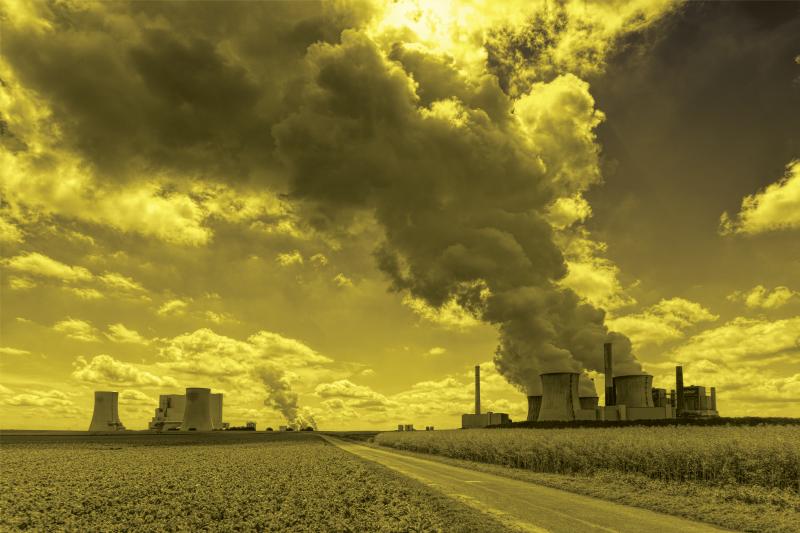
Pro-gas rapporteur on controversial EU energy revision refuses to reveal who has lobbied him
The MEP leading the influential energy committee’s work on the future of EU support for major energy projects is pushing the European Parliament to back renewed support for fossil gas - in line with demands of the gas industry – whilst refusing to reveal his meetings with gas lobbyists
Next week, the ITRE Committee will decide its position on the revision of a key EU energy policy, the Trans-European Networks-Energy Regulation (TEN-E), that could define the position of the European Parliament ahead of final talks with the Commission and Council.
A new investigation by Global Witness and Corporate Europe Observatory details how the lead rapporteur for these negotiations, MEP Zdzisław Krasnodębski, is refusing requests to reveal the extent of his recent lobby meetings during the TEN-E revision process. Earlier disclosures have shown that Krasnodębski was lobbied by at least a dozen gas companies or trade associations representing gas industry interests.
Krasnodębski has a history of close links to the gas lobby, including hosting a gas industry lobbying event in Parliament and his membership of a closed-doors group of EU decision-makers and fossil fuel companies known as the European Energy Forum. The report also reveals that
Krasnodębski has firmly supported fossil gas during the TEN-E revision, with him or his party introducing amendments to the law which match the demands of gas lobby groups such as Eurogas.
These proposals would:
- Allow fossil gas projects to continue receiving EU support – as part of the fourth and fifth Projects of Common Interest (PCI) lists – despite proposals by the European Commission arguing that none of these projects should continue to get EU support.
- Open a loophole to fund new fossil gas infrastructure projects if they involve “blending” small amounts of hydrogen, which could be produced from fossil gas.
Barnaby Pace, senior gas campaigner at Global Witness, said: “The science is clear: the EU needs to urgently move away from fossil gas – so the last thing we should be doing is letting the gas industry set the agenda by pulling the strings of MEPs it’s friendly with.”
“MEPs have a clear responsibility to reject the climate wrecking agenda that Krasnodębski is offering them next week and send a clear signal that the EU must stop supporting fossil gas in any form – no new pipelines or terminals - not even under the greenwashing of hydrogen blending.”
Belen Balanya, campaigner with Corporate Europe Observatory, said: “Fossil fuel lobbyists keep sabotaging effective climate action to preserve their business model. To ensure that climate policy is conducted entirely in the public interest we need to cut their access to policy making, similar to existing restrictions on the tobacco industry concerning health policy, and in line with the Fossil Free Politics campaign demands.”
Krasnodębski is only obliged to reveal his lobby meetings before the relevant vote, and has said that he will meet this deadline, other lead MEPs on TEN-E have already done so. By refusing to disclose until the last minute, Krasnodebski is failing to allow proper public scrutiny over matters that could impact the vote.
The EU’s revision of TEN-E was designed to bring the energy regulation in line with the European Green Deal and comes at a time when Europe has experienced extreme weather events that European leaders have said are a product of the climate crisis. Yet despite this reality, the European Parliament looks set to back fossil gas, even though evidence shows Europe already has more gas infrastructure than is needed.
Meanwhile Global Witness analysis has found that the new gas projects on the fifth PCI list alone could emit 213 million tonnes of carbon dioxide each year, the same as Germany’s entire coal fleet in 2018. And nearly half a billion euros has been wasted already by the EU on PCIs that have failed or are likely to. In addition, nearly half a billion euros has been wasted already by the EU on PCIs that have failed or are likely to.
Notes to Editor:
1) Link to the Fossil Free Politics Campaign, supported by Global Witness and the Corporate Europe Observatory https://www.fossilfreepolitics.org/
2) ITRE Committee MEPs will vote on the TEN-E file on Monday 27 September. Depending on the outcome, the position will either be taken directly to negotiations with the EU Council to agree a final law or go to a plenary vote first.
3) Projects of Common Interest are those gas infrastructure projects that the EU decides will receive public funds and fast-tracked political support, as defined by the TEN-E regulation. 4) Global Witness’ analysis of the fifth PCI lists emissions can be found at: https://docs.google.com/spreadsheets/d/1M8bi3PRsPjg3nyjHJRQZOMYwD5y3B2d… BvEU/edit#gid=0 Contact
